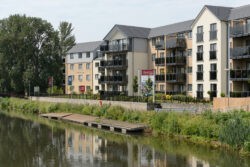The idea of independent living in an upscale development with lots of fun facilities, people of a similar age to socialise with, and access to support if you need it, has strong appeal. And it seems that many people agree.
A recent study by ProMatura International and ARCO (the Associated Retirement Community Operators) has shown that people who live in dedicated retirement communities have healthier, more active, more social, more secure and happier lives.
Nearly 4,000 people, made up from a mix of current residents of retirement villages and older people who were considering a move to one, took part in the research. The main findings were that retirement village residents stay healthier for longer, are more active, are less lonely, have a greater sense of a safety net, feel more secure, enjoy life more, and enjoy more privacy compared to those who had not yet moved.
What is a retirement village?
Retirement villages combine high quality housing options for older people with tailored support services. They allow residents to rent or own a property and to maintain their privacy and independence, with the reassurance of 24-hour on-site staff, communal facilities, and optional care and support as needed. There are nearly 25,000 retirement villages dotted around the UK.
Most retirement villages promote a luxury lifestyle, offering a variety of leisure facilities, such as swimming pools, restaurants and bars, plus the opportunity to enjoy social activities within a community of people of a similar age.
Who can live in a retirement village?
Despite its name, you do not have to be retired to live in a retirement village. You can be working and still qualify purely on the basis of your age. It can vary from one local council to another, but generally you need to be over 55 or 60. If you are part of a couple, often just one of you needs to be this age but do check the retirement village’s own regulations.
So if you’re considering retirement village living, here are a few things to think about:
- What are the financial considerations? For example, are the village properties offered on a leasehold or rental basis? What’s included in the service or maintenance charges?
- How is the village managed? For example, how are the communal areas, grounds and properties maintained? Does the village have a member of staff on site 24 hours a day?
- Try to visit as many as you can so you get a good sense of the community and what’s on offer
- Get as much information as possible when you visit, so take along a checklist of key questions to ask
It’s a very good idea to talk to your financial adviser well in advance of making any decisions like this, so you can explore the costs and benefits with the help of an independent expert. Your IFA can also help you in many other areas of retirement planning.
About the Author: Helen Say is a freelance copywriter and blogger www.cblservices.co.uk







